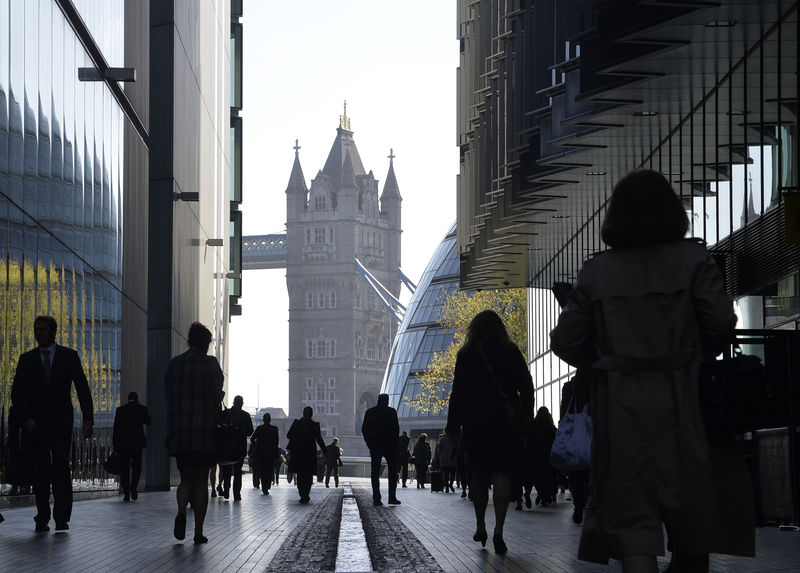LONDON (Reuters) - British employers plan to scale back their pay rises for staff next year, an industry survey showed on Thursday, suggesting overall earnings growth is likely to slow from its current 11-year high.
Human resources data company XpertHR said the 123 private-sector employers it surveyed expect to offer a median 2.1% annual pay settlement between now and the end of August 2020, compared with an average 2.5% over the past 12 months.
"While the strong labour market continues to put pressure on employers to raise wages, other costs and an uncertain outlook could well mean lower pay rises for employees," XpertHR analyst Sheila Attwood said.
Average wage growth - which usually exceeds pay settlements, due to the effect of promotions and job changes - rose to an 11-year high of 3.9% according to official figures for the three months to July, before slowing slightly in August.
Unemployment is also close to its lowest since the mid-1970s at 3.9%, but there was an unexpectedly sharp fall in hiring in the three months to August, raising concerns that the slowdown in the rest of the economy is spreading to the job market.
The Bank of England is watching pay pressures closely - as well as the Brexit process - as it assesses whether it should change interest rates.
The British Retail Consortium said in a separate report on Thursday that a long-term decline in the number of retail jobs had continued into the third quarter, though more firms planned to add seasonal staff in the run-up to Christmas than in 2018.
"Weak consumer demand and Brexit uncertainty continue to put pressure on retailers already focused on delivering the transformation taking place in the industry," BRC chief executive Helen Dickinson said.
Manufacturers surveyed by the Confederation of British Industry said earlier this week that they faced unprecedented political uncertainty, and that the outlook for orders and new hiring was the weakest since 2009.
Parliament has refused to fast-track approval of a new Brexit deal negotiated by Prime Minister Boris Johnson.
XpertHR said concerns about Brexit and profits were the main factors pushing down on the pay that businesses were willing to offer, while staff retention and a desire to keep pay rates competitive were putting upward pressure on pay.
